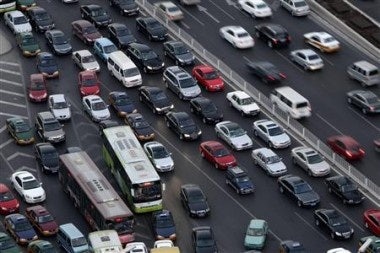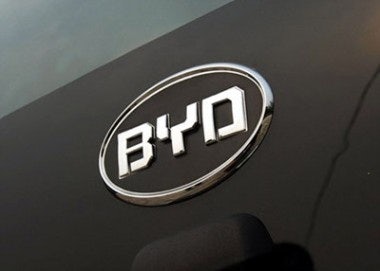Despite Lower Forecasts, Chinese Consumers Remain In Global Driver’s Seat#

Auto companies around the world are looking to China to drive sales in 2011. But the close of 2010 saw China initiating new auto policies that affected taxes nationwide and curtailed the number of cars on the streets in Beijing.
In an announcement on December 28, the Ministry of Finance stated that as of January 1, 2011, the 7.5 percent purchase tax for small vehicles (with engines less than 1.6 liters) would increase to 10 percent--a jump of one-third. According to the China Association of Automobile Manufacturers, in the first eleven months of 2010, a record 1.34 million units were sold in China -- a 30 percent increase over the same period in 2009, spurred by China’s then-preferential tax policies on autos, which for low-emission vehicles were 5 percent in 2009 and 7.5 percent in 2010.
A few days earlier, on December 23, the Beijing municipal government announced that new policies in effect on January 1 would limit the number of new license plates to 240,000 for small vehicles, with the goal of easing congestion caused by the dramatic increase of cars circulating in Beijing traffic. As other cities are predicted to follow Beijing’s example, analysts have begun to lower their forecasts for 2011, though only slightly. China-focused investment banking firms CITIC Securities and Shenyin & Wangguo Securities, for instance, have reduced their forecasts on China’s auto market growth in 2011 by 1 percent and 2 percent respectively. (These adjusted forecasts were made in response to the traffic congestion policy, even before the Ministry of Finance announcement.) Nomura Securities and China International Capital Corporation also affirmed that Beijing’s move is likely to influence other cities, with Nomura slightly reducing its forecast on 2011 sales to 19.6 million units from 20 million. This minor decrease indicates that analysts are still optimistic that China will continue driving sales for automakers, with growth continuing to rise, but at a slower rate than in 2010.
Despite the relative slowdown, China looks to remain the focus of international automakers, as Chinese auto buyers are still set to overtake U.S. sales again in 2011. Fatih Birol, chief economist for the International Energy Agency, projects that while only 30 out of every 1,000 people currently own cars in China, that figure could jump to 240 by the year 2035. Bill Russo, Beijing-based senior adviser at Global consulting firm Booz & Co., maintains that “China is becoming the center stage of development for the 21st century global auto industry,” and that the “economic growth has directly translated into automobile sales.” In response to the new policies -- particularly the new registration restrictions in Beijing -- Torsten Stocker of the global strategy consulting firm Monitor Group raised questions about first-time purchasers. Last year, about 50 percent of the 800,000 cars bought in Beijing were purchased by first-time buyers; with the new limitations and the assumed growth in the market, a significant number of future first-time buyers will be affected. Due to the increased waiting time for purchase that the new regulations are likely to cause, Stocker speculates that first-time buyers might end up shifting towards the higher end of the market. New marketing strategies could also convince current car owners to ‘trade up.’

At the same time, domestic automakers continue to struggle. BYD missed its 2010 sales target by 50,000 units and Caixin reported that major Chinese automakers have seen their stock prices drop in the wake of the Beijing policy announcement: by mid-day the next day, share prices of SAIC Motor, Dongfeng Motor, Geely Auto and BYD dropped 1.75, 8.45, 4.66 and 2.12 percent respectively. The Financial Times projected that the effect will be minimal, as only 5 percent of all car sales in China are from Beijing, but if other cities choose to follow suit, as many analysts believe, we’ll see greater challenges for domestic brands looking to stand out.
2011 Trend Watch#
: Despite the limitations posed by new policies, China continues to be a gold mine for automakers. Look for competition among foreign automakers in China to intensify, and for domestic brands to continue struggling to maintain their ground. With a slowing rate of growth in the Chinese auto market, all companies will be fighting harder and more strategically for consumers, and domestic automakers might be the ones to lose.